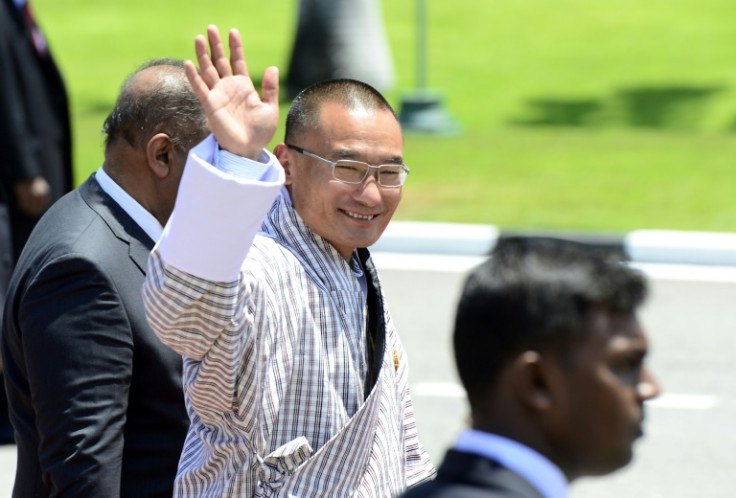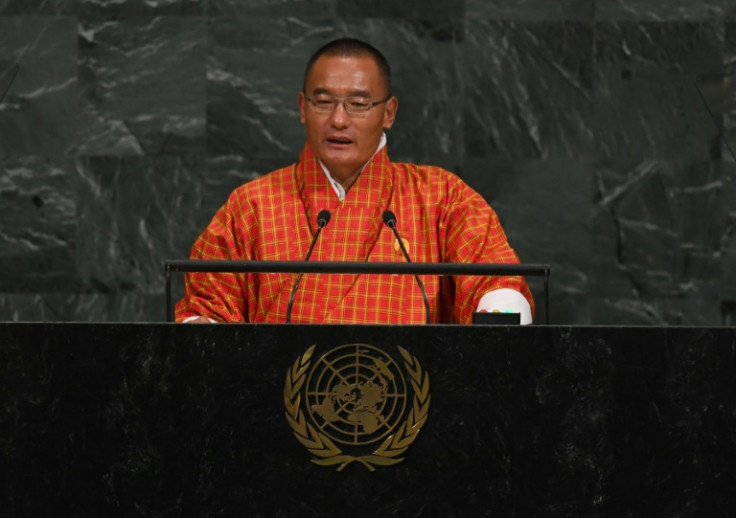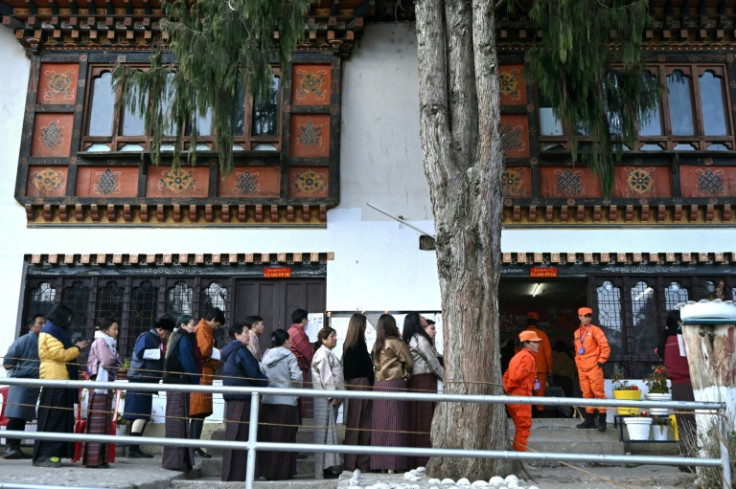Bhutan's Tobgay, Environmental Advocate Facing Economic Headwinds

The man set to become Bhutan's new prime minister is a passionate environmental advocate and sportsman, a veteran politician in a mountain kingdom where parliamentary democracy is still young.
Tshering Tobgay, who is expected to become premier for a second time after his party won nearly two-thirds of seats in elections on Tuesday, served as prime minister from 2013 to 2018.
The 58-year-old former civil servant, who holds degrees from the University of Pittsburgh and Harvard, was leader of the opposition in Bhutan's first parliament when it was established in 2008.
Head of the liberal People's Democratic Party (PDP), Tobgay fielded a heavyweight team that included several former ministers and lawmakers to win 30 of 47 seats in Tuesday's election, Bhutanese media reported.
Usually dressed in the Himalayan nation's traditional colourful "gho" clothes, a striped knee-length robe, he is an ardent backer of the country's constitutionally enshrined policy of "Gross National Happiness".
The policy, launched by the previous king in the 1970s, is based on four pillars: governance, socio-economic development, preserving culture and protecting the environment.
In a TED talk Tobgay called the policy a "pioneering vision that aims to improve the happiness and well-being" of citizens.
He argued that while economic growth is important, it "must not come from undermining our unique culture or our pristine environment".
But he also acknowledged it is a policy that is "easier said than done, especially when you are one of the smallest economies in the world".
For Bhutan, a country of about 800,000 people sandwiched between the world's two most populous nations India and China, the challenges are many.
They include rural poverty, high youth unemployment and brain drain abroad.
"We must strengthen our economy not only to retain our valuable human resources at home but also entice those who have migrated overseas to return and actively participate in nation-building," Tobgay pledged in his election manifesto.
He has promised to boost ties with India, including by developing rail links with his country's giant southern neighbour.
More than two-thirds of landlocked Bhutan is covered in forest, and the country boasts of being among a handful of carbon-negative countries, a source of pride for Tobgay.
An advocate of conservation policies and efforts to protect biodiversity, Tobgay has warned of the dangers caused by fast-melting Himalayan glaciers as global temperatures rise.
He is also clear-eyed about the problems his nation faces.
"Bhutan is a small country in the Himalayas, we've been called Shangri-La... but let me tell you right off the bat, we are not," he said in the TED talk in 2016.
"My country is not one big monastery populated with happy monks... the reality is that we are a small, underdeveloped country doing our best to survive."
Married with two children, Tobgay is a keen sportsman, enjoying yoga and hiking in his country's mountains.
He is also passionate about the national sport, archery, as well as cycling, and has competed in the country's tough 266-kilometre (165 mile) one-day "Tour of the Dragon" mountain bike race.


© Copyright AFP {{Year}}. All rights reserved.





















